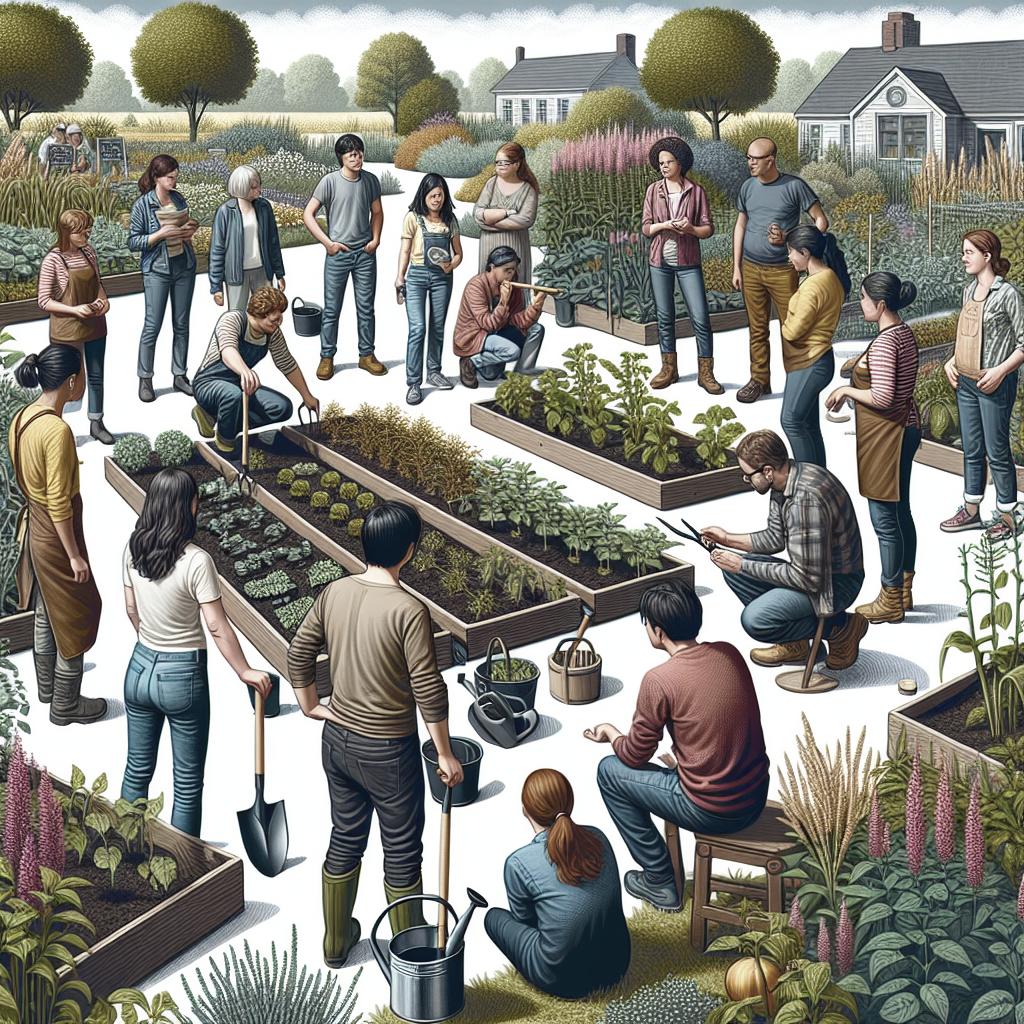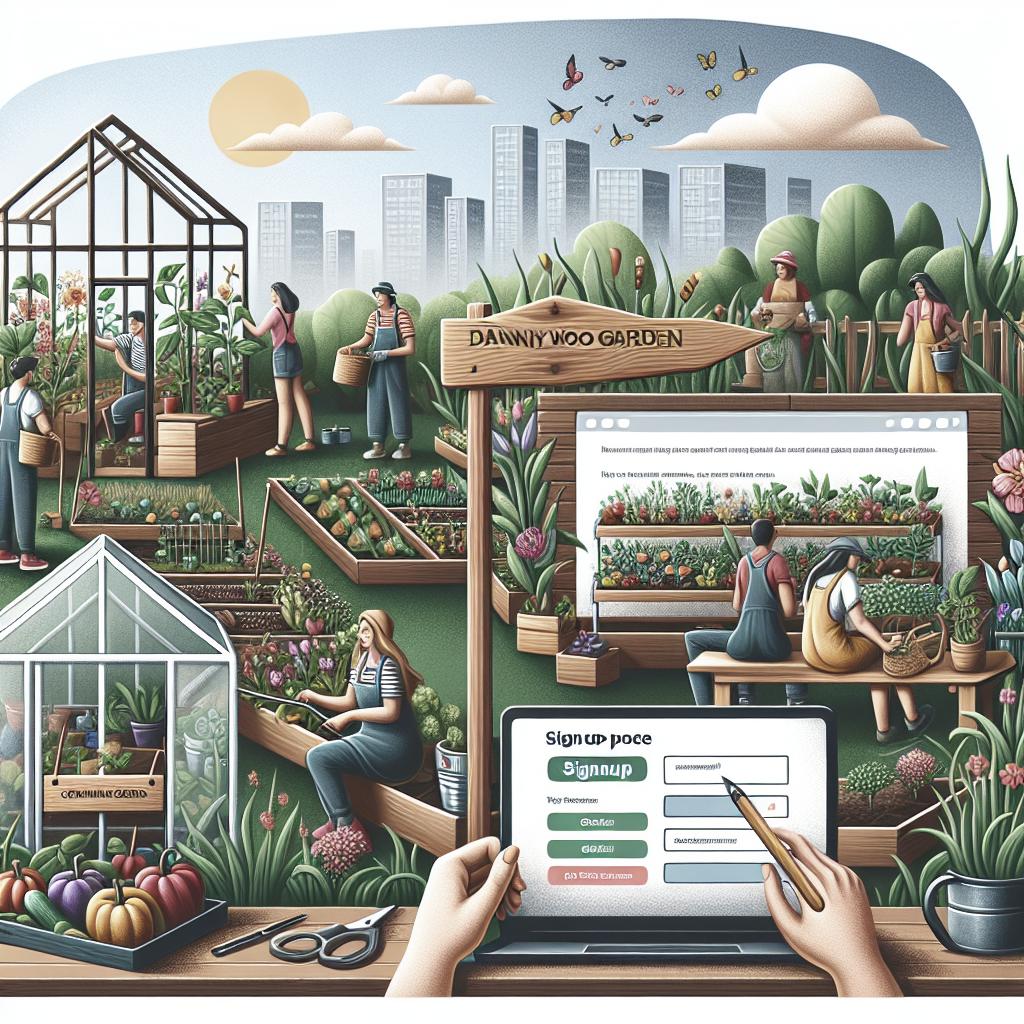“`html
How to Host Gardening Workshops for the Community
Gardening workshops offer great opportunities to bring communities together, share knowledge, and foster a love for the environment. With gardening becoming an increasingly popular hobby, hosting workshops can help people develop new skills, from growing their own vegetables to creating beautiful flower arrangements. This blog post will guide you through the necessary steps to host a successful gardening workshop. We will delve into topics such as planning, promotion, and execution, using the Callan Community Garden in Co Kilkenny as a case study to illustrate best practices. Whether you are a gardening enthusiast or someone looking to make a positive impact in your community, these tips will help you get started on hosting your own gardening workshop.
Focus On: Callan Community Garden, Co Kilkenny
Located in the heart of Kilkenny, Callan Community Garden serves as an exemplary model for hosting community gardening workshops. The garden is not only a green oasis but a hub for learning and collaboration. Regular workshops hosted here have empowered community members to take up gardening, fostering a sense of ownership and pride. To understand why Callan Community Garden is such a successful example, it’s essential to look at their planning process. They start by identifying the needs and interests of the community through surveys and informal conversations. This ensures that each workshop is relevant and engaging. The garden also partners with local experts and experienced gardeners to provide high-quality instruction. Additionally, they prioritize accessibility, ensuring that workshops cater to varying levels of experience and are free or low-cost to attend. The community also benefits from strategically chosen topics that range from sustainable gardening practices to seasonal planting tips. By offering diverse, relevant subjects, Callan Community Garden keeps participants coming back and continues to draw new audiences. Their structured yet flexible approach provides a blueprint for anyone looking to replicate their success.
Planning Your Workshop
Planning is the cornerstone of a successful gardening workshop. Start by defining your objectives: Are you looking to educate beginners on basic gardening skills, or are you focusing on more advanced topics like permaculture or organic gardening? Once your objectives are clear, develop a curriculum that covers these areas comprehensively. Break down the content into manageable sections to ensure participants are engaged and not overwhelmed. Venue selection is another critical step. An outdoor location like a community garden or local park is ideal as it provides a practical, hands-on learning environment. Make sure the venue has basic amenities like restrooms, seating, and shade. If an outdoor location isn’t feasible, consider indoor community centers or school gyms, ensuring they are adequately equipped for your needs. Budgeting is essential too. Outline all expected costs, including materials, expert fees, and promotional expenses. Applying for grants or seeking sponsorships from local businesses can help offset costs. Remember to also factor in unexpected expenses so that your event runs smoothly.
Promoting Your Workshop
Effective promotion is key to attracting participants to your gardening workshop. Leverage social media platforms like Facebook, Instagram, and Twitter to reach a wide audience. Create engaging posts that highlight what attendees can learn, and use eye-catching images of plants and past workshops to attract interest. Use hashtags related to gardening to increase visibility. Flyers and posters are also a traditional yet effective way to spread the word, particularly in neighborhoods where your target audience resides. Distribute them at local farmers’ markets, libraries, and community centers. Don’t overlook local newspapers and online community boards, as they can help you reach people who might not be active on social media. Partnering with local organizations can further amplify your promotional efforts. Schools, gardening clubs, and environmental groups often have established networks that can help spread the word. Offering these organizations a chance to co-host or participate can create a mutually beneficial relationship that enhances your workshop’s visibility and credibility.
Executing the Workshop
On the day of the workshop, ensure that everything is organized and runs smoothly. Arrive early to set up the venue, arrange materials, and test any equipment you plan to use. Welcome participants warmly as they arrive, and provide them with name tags and information packets related to the workshop’s agenda and content. Begin the workshop with a brief introduction, covering the schedule, topics to be covered, and any ground rules. A hands-on approach is often the most effective way to teach gardening skills. Workshops should include practical demonstrations and interactive activities such as planting seeds, composting, or creating garden beds. Encourage participants to ask questions and share their own tips and experiences, fostering a collaborative learning environment. End the session with a Q&A segment, where participants can clarify any doubts they might have. Distribute feedback forms to gather insights into what participants enjoyed and what can be improved. This feedback will be invaluable for planning future workshops.
Future Prospects
To keep the momentum going, consider organizing a series of workshops or ongoing gardening club meetings. This continuity helps build a committed community around the garden. Offer advanced sessions for those who wish to deepen their knowledge and invite guest speakers to cover specialized topics. Additionally, maintain an online presence by creating a website or blog where you can post gardening tips, workshop highlights, and upcoming events. A monthly newsletter can keep your community engaged and informed. Encourage participants to share their gardening progress on social media using a specific hashtag to build a sense of community. Remember, the goal is to build a sustainable community initiative that continues to grow and evolve over time. Listening to participants’ needs and adapting accordingly will ensure that your gardening workshops remain relevant and impactful.
| Section | Content Summary |
|---|---|
| Focus On: Callan Community Garden, Co Kilkenny | A successful model for community gardening workshops, emphasizing planning, expert partnerships, and diverse topics. |
| Planning Your Workshop | Steps for defining objectives, selecting venues, and budgeting for a gardening workshop. |
| Promoting Your Workshop | Strategies for using social media, traditional methods, and partnerships to attract participants. |
| Executing the Workshop | Tips for organizing the day, including setup, introductions, hands-on activities, and gathering feedback. |
| Future Prospects | Suggestions for maintaining engagement through series, online presence, advanced sessions, and community-building activities. |
“`


